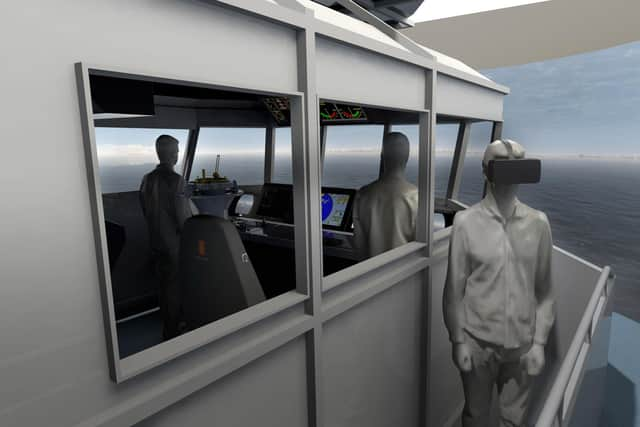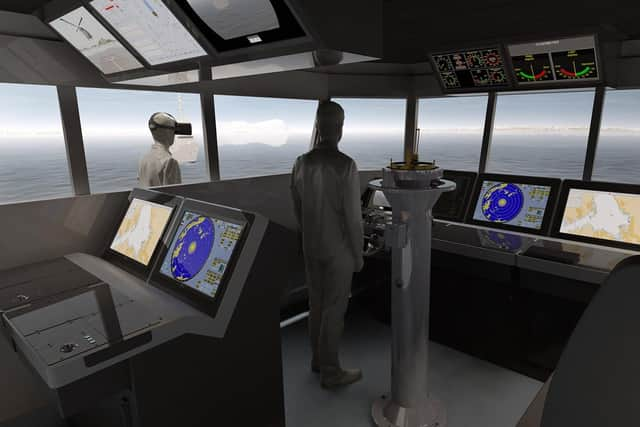Royal Navy: Navigation simulators and VR headsets installed at HMS Collingwood to train sailors of tomorrow
and live on Freeview channel 276
Military personnel at the Fareham base will don headsets to take them into what is described as a naval ‘metaverse’. Sailors will take part in new navigation simulators and immerse themselves in key and often dangerous manoeuvres.
The new software is capable of recreating the entire fleet, harbours and waters around the world, as well as challenging weather conditions day or night. Three full mission bridge simulators and two smaller ones will be installed at HMS Collingwood.


Advertisement
Hide AdAdvertisement
Hide AdIt will also feature at Britannia Royal Naval College, Dartmouth, and the home of the Submarine Service in Faslane. Lieutenant Commander Mark Raeburn, in charge of navigation training, said the new facilities allows for more sailors could be trained and earn more practical experience rather than spend time in the classroom.
‘Nothing beats practical experience and our Fleet Navigators and Specialist Navigators will continue to be assessed at sea on the navigation training ship HMS Severn but the new simulators should markedly increase the preparedness of the students,’ he said.
‘As the suite of simulation will also be increased at Dartmouth and Faslane this will allow cohesive training on the same software – before we have had to rely on disparate software systems with no commonality of training.’


The investment is part of the modernisation of Royal Navy training by Project Selborne. It is a 12-year programme overseen by Capita to update and deliver a raft of training across many naval disciplines and branches.
Advertisement
Hide AdAdvertisement
Hide AdThe Navy’s existing simulators have trained thousands of navigators, officers of the watch and bridge teams for two decades. New simulators – showing group manoeuvres, show to replenish a ship at sea and other operations – will work individually at first but will soon be be linked together, allowing students to train together at the same time.
Andreas Jagtøyen, executive vice president of Digital Ocean, Kongsberg Digital. said: ‘A number of naval academies world-wide are today heavily using our simulator systems for education and training purposes.
‘The Royal Navy contract is a recognition of our technology and will further strengthen our position within the naval simulator training domain.’ The first students are due to use the simulators in September.